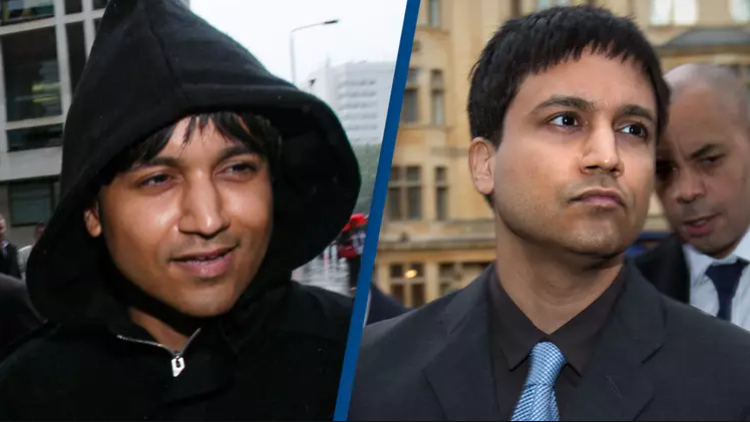Navinder Sarao became known as ‘The Hound of Hounslow’ after his technique for gaming the US stock market was exposed
One man’s activities in his parents’ home contributed to a short but sharp crash of $1 trillion on the US stock market.
You’ve probably heard of The Wolf of Wall Street, but have you heard of The Hound of Hounslow?
This was moniker given to Navinder Singh Sarao, who is thought to have made $40 million from his parents’ London home using a technique to game the market.
However, this technique may have had some big repercussions, and Sarao was eventually tracked down and arrested after his activities were linked to a brief but sharp crash in 2010.
The crash lasted for less than an hour before the markets recovered, but saw some $1 trillion lost from the markets in a blood-pressure-escalating 35 minutes.
Sarao had taught himself to trade on the stock markets, and his activities were part of what caused panic on the markets in 2010’s so-called ‘flash crash’.
The trader, now 45, was held in Wandsworth Prison in the UK for four months after his arrest before he was extradited to the US.
But what on Earth did he do that may have been a factor in such a huge, if brief, panic in the markets?
Sarao used a technique called ‘spoofing’, which took advantage of the software used by high frequency traders.
These are traders which are often computers running algorithms that make trades extremely quickly to try and be the first to cash in on market changes.
But because these high frequency traders reacted to market fluctuations very quickly, Sarao noticed that they reacted predictably.
It was almost as though they were a flock of sheep which could be ‘herded’ by a hound, as they would all move in the same direction.
Sarao took advantage of this by placing thousands of orders on the market, increasing demand in one direction, which is what ‘spoofing’ refers to.
He would then quickly cancel or change the orders after the high frequency traders reacted.
Sarao carried out the trades at his parents’ house in Hounslow. (Carl Court/Getty Images)
Sarao carried out the trades at his parents’ house in Hounslow. (Carl Court/Getty Images)
This meant he could make the buy or sell orders at a profit by ‘herding’ the market in a particular direction.
In 2016 Sarao agreed to pay $12.8 million to the US government, which was how much prosecutors had said he had earned.
Despite his practices being a factor in the flash crash, prosecutors also didn’t pursue any jail time for him.
They took account of Sarao’s autism and the fact he had already served time in jail while on remand in the UK.
Defence attorneys said that he had viewed his activities as being ‘like winning a video game’, and he didn’t spend the money on any luxuries, losing a lot of it to fraudsters.
Sarao had also used his expertise to actively help the government crack down on financial crime in the years following his arrest.

